|
Australian Co-Minister for Foreign Affairs and Trade Matt Thistlethwaite affirmed that the Hanoi Convention is truly a global turning point in the fight against cybercrime. (Photo: Ngoc Anh) |
Please agree Minister, share your feelings when being present at the signing ceremony of the United Nations Convention against Cybercrime today?
First of all, congratulations to Vietnam for hosting this extremely important United Nations signing ceremony on cybersecurity. This is a significant milestone not only for Vietnam but also for the whole world , as countries work together to combat the growing threat from cybercrime, in order to ensure the safety and security of their citizens.
This isn't my first time in Vietnam. Twenty years ago, my wife and I backpacked across your beautiful country. I truly love the Vietnamese people, the beautiful nature, and the unique culture of your country.
I am also very pleased with the warm welcome and particularly impressed by Vietnam's remarkable development over the past two decades, especially in Hanoi. I believe this is one of the reasons Vietnam was chosen to host this important signing ceremony – demonstrating Vietnam's strong commitment to combating cybercrime, not only regionally but globally, as well as the Southeast Asian nation's commitment to multilateralism. Australia extends its sincere thanks for this.
This also demonstrates the impressive socio-economic development of Vietnam – one of the leading economies in the Asian region, and a partner with whom Australia looks forward to continuing close cooperation in the future. Currently, there are approximately 390,000 people of Vietnamese origin living in Australia, making significant contributions to our country's economy, along with around 35,000 Vietnamese students studying in Australia, diligently making substantial contributions to the Australian education system and society.
Therefore, I would like to thank Vietnam, and your government, for your commitment to multilateralism, for your efforts to enhance cybersecurity in the region, and for hosting this important signing ceremony.
Australia is one of the countries actively involved in negotiating and developing the United Nations Convention against Cybercrime. How does the Minister assess the significance of the Convention for global efforts to combat cybercrime and build a safe, transparent, and trustworthy cyberspace?
This is a pivotal moment, as the world acts together to combat cybercrime. For the first time, the international community has a comprehensive convention dedicated to the prevention, investigation, and prosecution of cybercrimes, including both technology-dependent crimes (such as cyberattacks) and technology-assisted crimes (such as child trafficking and the dissemination of sensitive images). Above all, the world unanimously recognizes that these are criminal acts and require a common framework for effective investigation and prosecution.
The Convention also specifies in detail how evidence is shared and protected, ensuring transparency and effectiveness within the legal systems of member states. This is truly a global turning point in the fight against cybercrime, and Vietnam is at the forefront of this process; you can be very proud of that.
Mr. Co-Minister, cybersecurity is currently one of the main pillars of cooperation between Vietnam and Australia. How do you assess Vietnam's role in hosting this signing ceremony?
Earlier this year, Australia and Vietnam signed a Memorandum of Understanding (MOU) on cybersecurity and critical technologies cooperation, demonstrating the two governments' commitment to sharing information, enhancing citizens' capabilities, and coordinating in multilateral forums such as this event. This is a prime example of the effective cooperation between the two countries in protecting citizens, businesses, and the economy from the threat of cybercrime.
Australia is also taking action at the regional level through our foreign policy focus on Southeast Asia and the Pacific. We are providing $85 million to support partner countries, including Vietnam, to strengthen their capacity to combat cybercrime and protect their people and economies.
|
The Hanoi Convention marks the first time the international community has had a comprehensive convention dedicated to the prevention, investigation, and prosecution of cybercrimes, including technology-dependent and technology-assisted crimes. (Photo: Thanh Long) |
After the signing ceremony, what specific steps will Australia take to cooperate with Vietnam and member countries in implementing the Convention, sir?
I am very much looking forward to visiting RMIT University – an Australian university operating in Hanoi – to meet the Vietnamese students participating in the hackathon simulating cyberattack and defense.
Such activities help students practice the security principles outlined in the Hanoi Convention, thereby contributing to ensuring cybersecurity in the future.
This is a vivid example of how Australia and Vietnam are working together to enhance capacity, share information and skills, and protect citizens from cybercrime. We are delighted that Australian educational institutions in Vietnam are making a positive contribution to this process.
According to the Co-Ministers, what are the emerging cybersecurity challenges in the Asia-Pacific region, and how will this Convention help address them?
I believe that cybercrime is not limited by national borders. It is a global problem that every economy is facing.
Australia has suffered a number of serious cyber attacks targeting telecommunications companies, insurance companies and even its national airline. Most of these attacks originated from overseas. This shows that no country can deal with it alone, and this is why today’s Convention and Signing Ceremony are so significant: the world has recognised the scale of the problem and is working together to build a mechanism for cooperation to deal with it.
I am aware that Vietnam has also experienced numerous cyberattacks affecting its economy and people's lives. Therefore, Australia wishes to cooperate closely with Vietnam within the framework of this Convention to share intelligence and coordinate actions to protect both countries from common threats.
Women and children are among the most vulnerable groups in cyberspace. Does Australia have any initiatives that Vietnam could learn from or collaborate on to enhance the protection of these groups, Mr. Co-Minister?
Cyberspace not only facilitates cyberattacks but also allows crimes to cross borders, such as the distribution of child pornography or the unauthorized sharing of private images. These are dangerous crimes that are on the rise globally. Therefore, governments around the world have joined forces and said, “It’s time to stop.”
The Hanoi Convention is a concrete step towards protecting people from online crimes, through information sharing, coordinated investigation and prosecution, not only of direct cybercrime but also of crimes with technological elements such as image abuse, sexual exploitation and child trafficking. This is a global commitment and we need to do it as soon as possible.
Thank you very much, Minister!
Source: https://baoquocte.vn/cong-uoc-ha-noi-khi-the-gioi-cung-nhau-hanh-dong-chong-lai-toi-pham-mang-332203.html


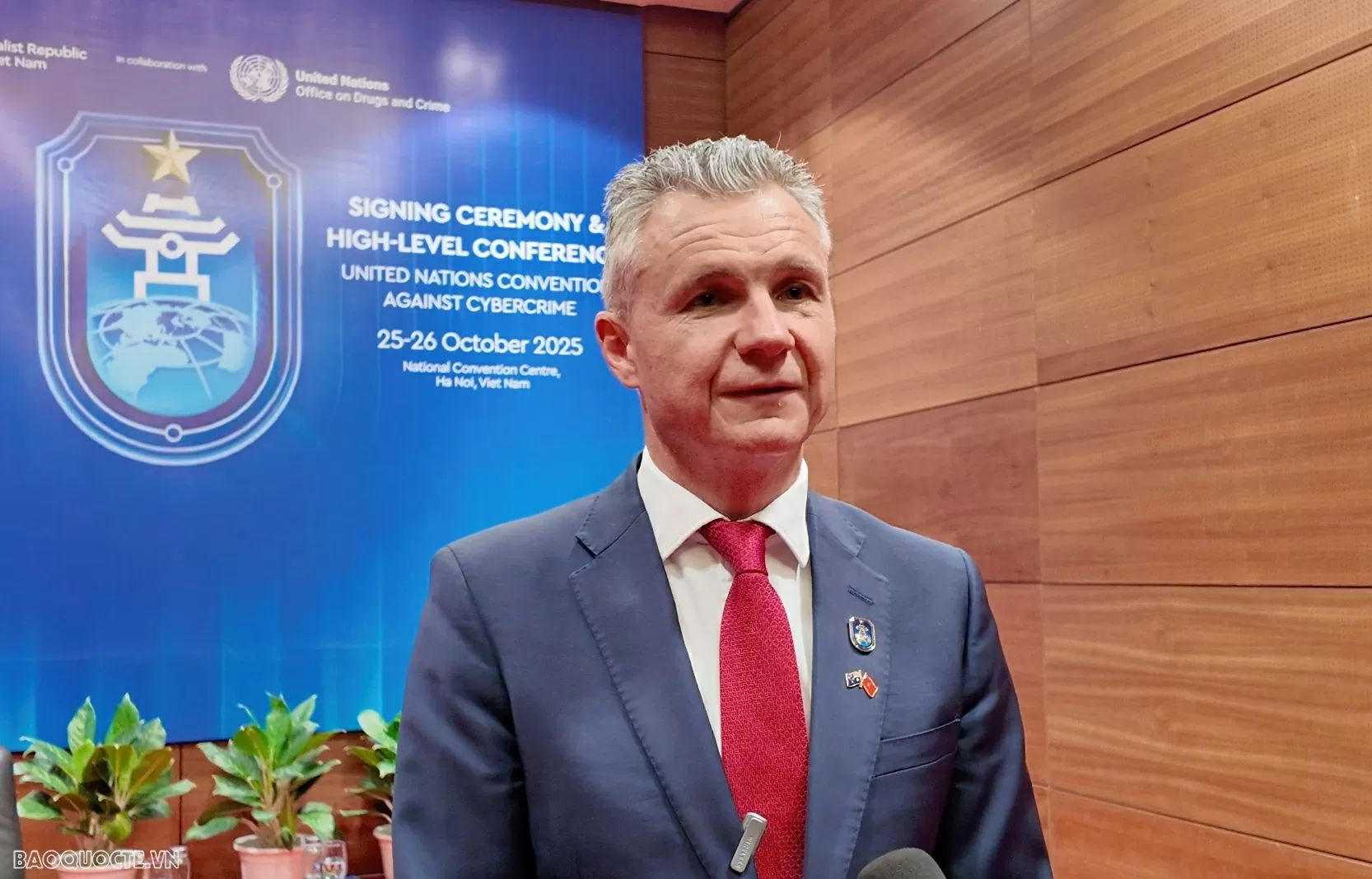
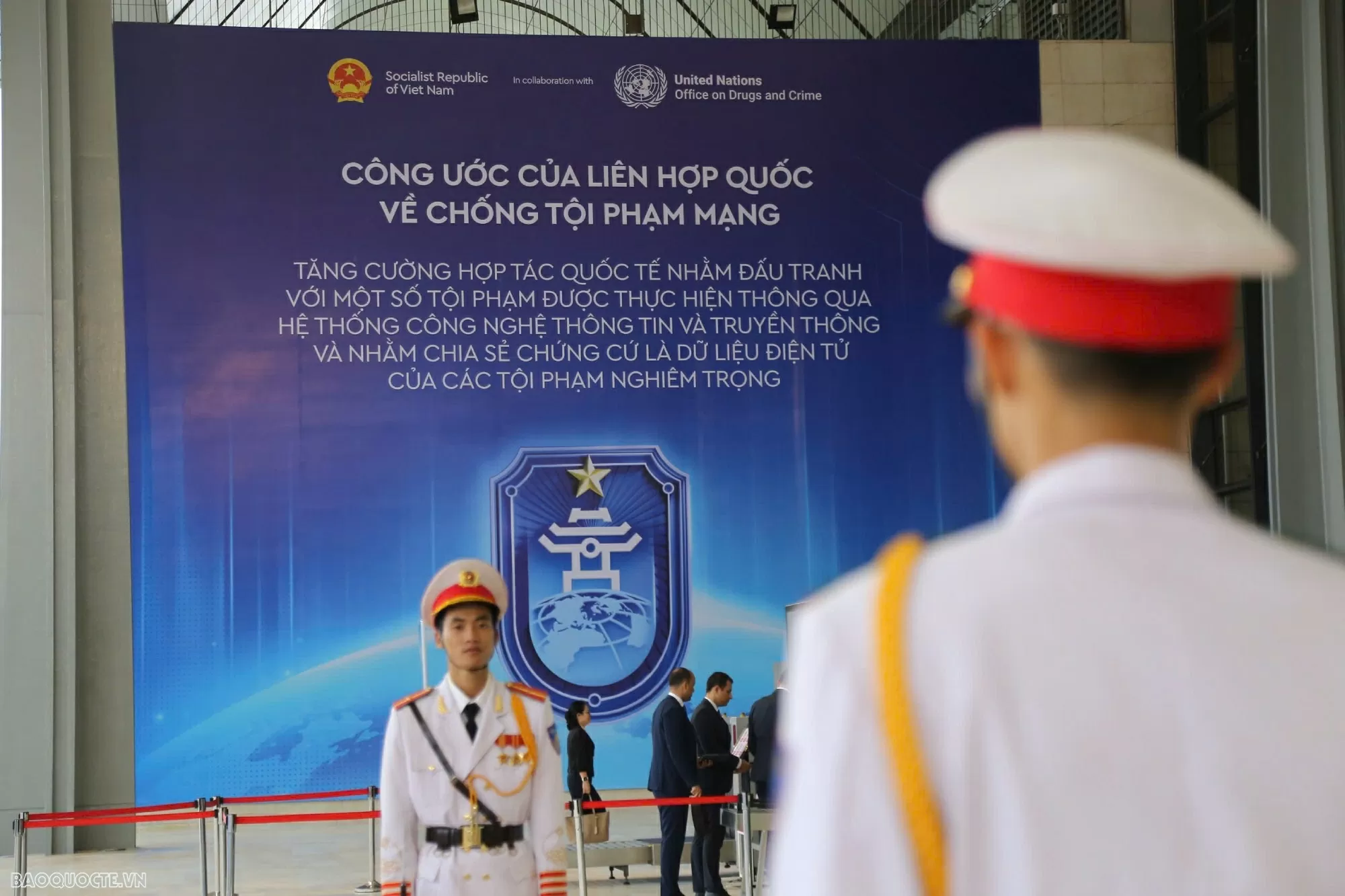

![[Photo] Prime Minister Pham Minh Chinh holds a phone call with the CEO of Russia's Rosatom Corporation.](/_next/image?url=https%3A%2F%2Fvphoto.vietnam.vn%2Fthumb%2F1200x675%2Fvietnam%2Fresource%2FIMAGE%2F2025%2F12%2F11%2F1765464552365_dsc-5295-jpg.webp&w=3840&q=75)


![[Photo] Closing Ceremony of the 10th Session of the 15th National Assembly](/_next/image?url=https%3A%2F%2Fvphoto.vietnam.vn%2Fthumb%2F1200x675%2Fvietnam%2Fresource%2FIMAGE%2F2025%2F12%2F11%2F1765448959967_image-1437-jpg.webp&w=3840&q=75)

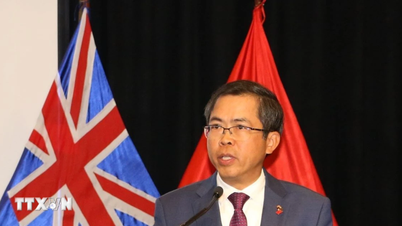


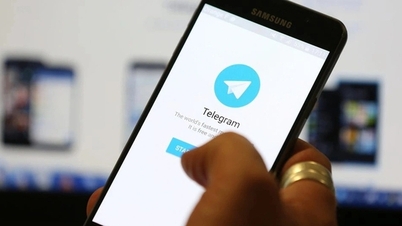

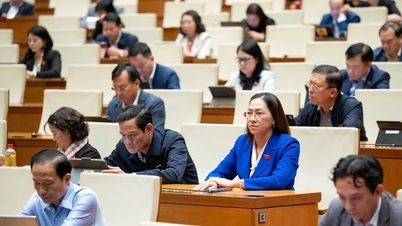

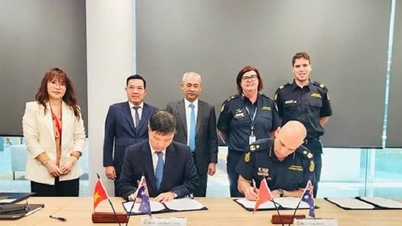

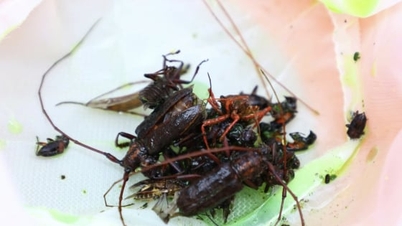

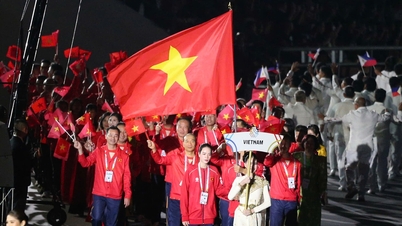
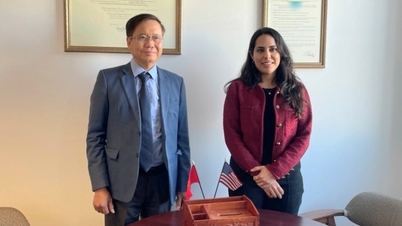
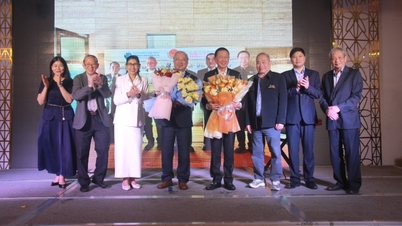

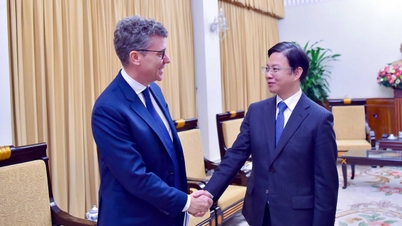
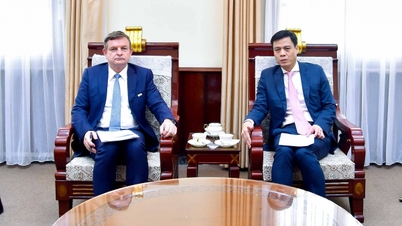
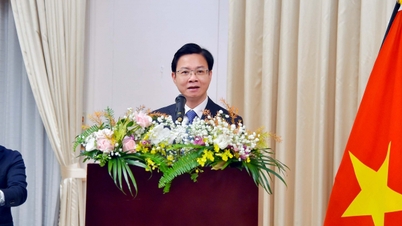





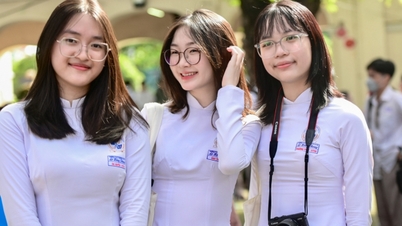



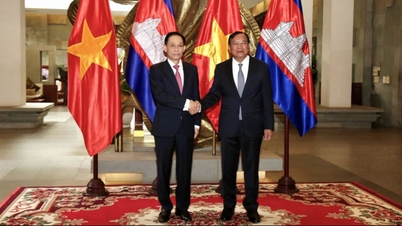






















![[OFFICIAL] MISA GROUP ANNOUNCES ITS PIONEERING BRAND POSITIONING IN BUILDING AGENTIC AI FOR BUSINESSES, HOUSEHOLDS, AND THE GOVERNMENT](https://vphoto.vietnam.vn/thumb/402x226/vietnam/resource/IMAGE/2025/12/11/1765444754256_agentic-ai_postfb-scaled.png)

































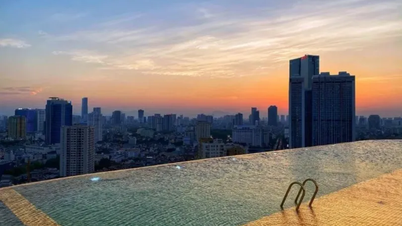



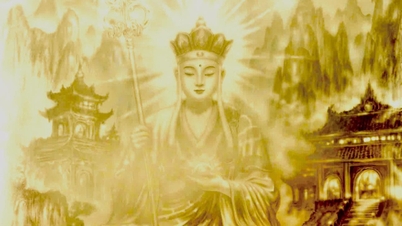










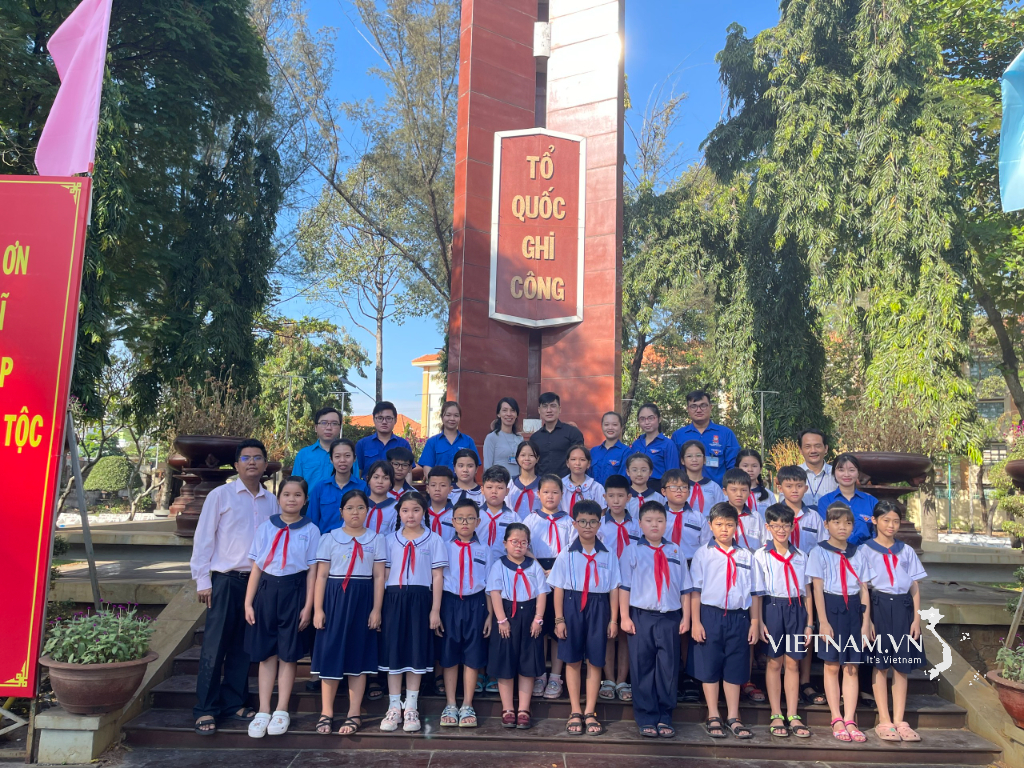

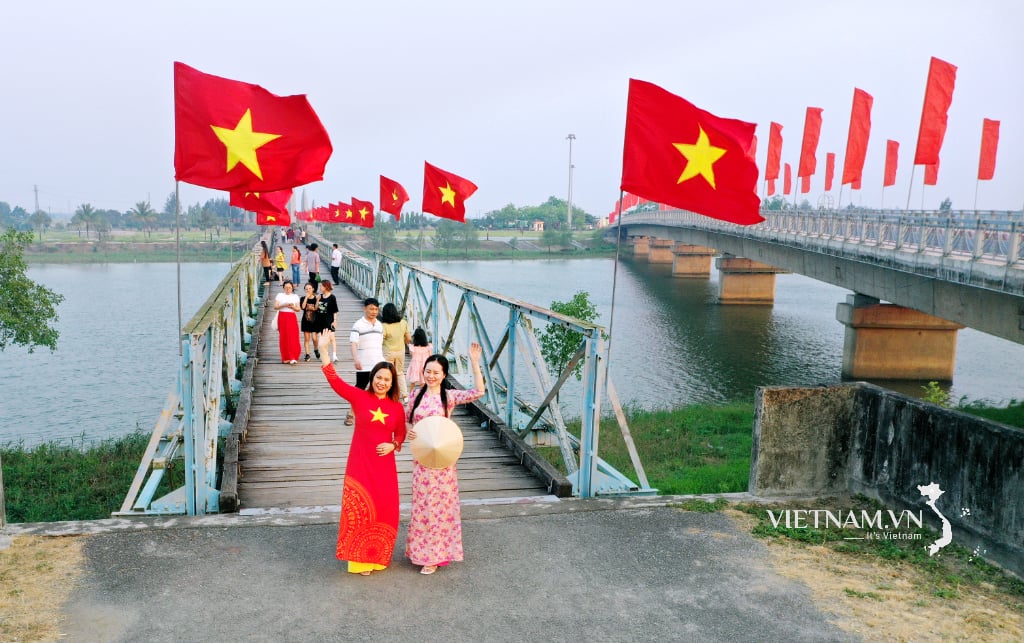

Comment (0)